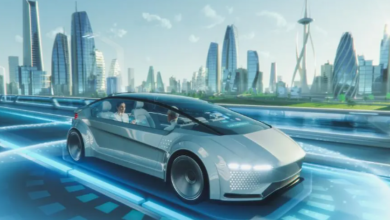Top 5 Challenges Facing the Auto Industry in 2024

In the ever-evolving landscape of the automotive industry, 2024 presents a host of challenges that demand strategic adaptation and innovative solutions. As we steer into this dynamic era, it’s imperative to identify and address the Top 5 Challenges Facing the Auto Industry in 2024.
1. Technological Disruption: The Race for Innovation
In an age where technology is advancing at an unprecedented pace, the auto industry is at the forefront of a digital revolution. Connected vehicles, autonomous driving, and electric propulsion are no longer futuristic concepts but immediate priorities. Manufacturers are engaged in a relentless race to integrate cutting-edge technologies, ensuring not only compliance with evolving standards but also staying ahead in the market. Melbourne Cash For Carz
2. Sustainability Imperative: Navigating Environmental Regulations
As the global focus intensifies on sustainable practices, the automotive industry faces a pressing challenge in meeting stringent environmental regulations. The transition to zero-emission vehicles, adherence to stringent emission standards, and the implementation of eco-friendly manufacturing processes are critical to staying competitive. The demand for eco-conscious practices isn’t just a trend—it’s a necessity for long-term viability.
3. Supply Chain Volatility: Navigating the Waters of Uncertainty
The auto industry, like many others, is grappling with the ramifications of an increasingly volatile supply chain. From geopolitical tensions to the ongoing challenges posed by the global pandemic, securing a stable and resilient supply chain is paramount. Supply chain diversification, strategic partnerships, and leveraging digital technologies for real-time monitoring are key strategies to mitigate disruptions and maintain production efficiency.
4. Evolving Consumer Expectations: Personalization and Beyond
Consumer expectations are evolving rapidly, driven by a desire for personalized experiences and a heightened focus on sustainability. Meeting these demands requires a paradigm shift in how the auto industry approaches customer engagement. Data-driven personalization, eco-friendly design, and seamless integration of smart features are pivotal in not just meeting but exceeding consumer expectations, fostering brand loyalty in an increasingly competitive market.
5. Regulatory Compliance: Navigating the Complex Legal Landscape
The regulatory landscape in the auto industry is intricate and ever-changing. Manufacturers must navigate a complex web of safety standards, emission regulations, and trade policies. Staying compliant is not just a legal obligation but a fundamental aspect of maintaining a positive brand image. Embracing a proactive approach to regulatory compliance through continuous monitoring, adaptation, and collaboration with industry regulators is essential for sustained success.
Strategies for Success: Steering Through Challenges
As the auto industry confronts these challenges head-on, successful navigation requires a strategic approach. Here are some key strategies to not only address but conquer the hurdles that lie ahead:
1. Innovation Integration: Embrace the Tech Revolution
Manufacturers must adopt an agile approach to innovation, integrating emerging technologies seamlessly into their product lines. This involves not only investing in research and development but also fostering a culture of innovation within the organization.
2. Sustainability as a Core Value: Beyond Compliance
Shift the focus from mere compliance with environmental regulations to making sustainability a core value. This includes investing in green technologies, promoting circular economy practices, and transparently communicating sustainability initiatives to consumers. https://www.melbournecashforcarz.com.au/we-buy-cars/
3. Resilient Supply Chains: Diversification and Digitization
To mitigate supply chain disruptions, the industry should prioritize diversification of suppliers and embrace digital technologies like blockchain for enhanced transparency. Real-time monitoring and predictive analytics can provide the agility needed to navigate uncertainties.
4. Customer-Centric Approach: Beyond Expectations
Understanding and anticipating consumer needs is crucial. Adopting data-driven insights, offering personalized services, and creating memorable customer experiences will not only meet but exceed evolving expectations.
5. Proactive Regulatory Engagement: Stay Ahead of Compliance
Rather than merely reacting to regulatory changes, industry players should proactively engage with regulators. This involves staying informed, participating in industry forums, and actively contributing to the development of regulations that align with both industry and societal needs.
Conclusion: Navigating the Future
As the auto industry faces the challenges of 2024, success lies in the ability to not just react but proactively shape the future. By embracing innovation, sustainability, resilient supply chains, customer-centric practices, and proactive regulatory engagement, the industry can navigate the road ahead with confidence and resilience.
Read more: combineclinic.com




